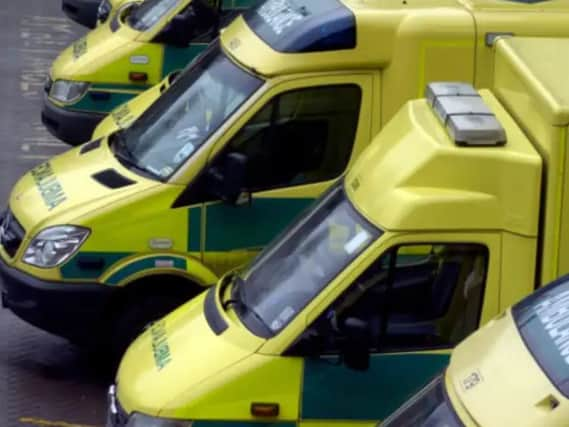Ambulances being sent out unnecessarily by 111 call handlers, says Lancashire GP


Dr Praphulla Methukunta told a clinical commissioning group meeting in Central Lancashire that paramedics were sometimes being sent to patients “absolutely unnecessarily”.
“It’s all well and good getting people to ring 111 to avoid Accident and Emergency - but if they are then sending ambulances which aren’t needed, people are still turning up at A&E and adding to the pressure [anyway],” Dr. Methukunta said.
Advertisement
Hide AdAdvertisement
Hide AdHe told fellow members that he believed the problem lay with a list of pre-determined questions asked by 111 call handlers.
“Even if you’ve phoned up about an ear pain, [but] at some stage you say you had chest pain about three days back, it triggers something [in the system] and they send an ambulance,” Dr. Methukunta added.
The meeting heard that the operational criteria for the 111 line - which is run in Lancashire by the North West Ambulance Service itself - is set at a national level and that certain ’red flag’ problems will always result in a paramedic being sent out.
But chair of the meeting, Dr. Sumantra Mukerji, said that the triage process operated by the 111 service was “dumbed down, because the phones are not necessarily manned by clinical people”. Call handlers do, however, have access to clinicians from whom they can seek advice.
Advertisement
Hide AdAdvertisement
Hide AdAnother GP, Dr. Sandeep Prakash, said patients should be encouraged to call their own surgery during its normal opening hours if they experience a non-emergency problem.
"If they’d have rung us, we wouldn’t have sent an ambulance, we’d have made them an appointment. It is often the case that paramedics ring us up and ask for an appointment [on behalf of the patient to whom they have been sent],” Dr. Prakash said.
In a statement issued after the meeting, the North West Ambulance Service said:
"Ambulances are only dispatched to 111 patients if they respond to certain questions in a way which indicates they need immediate and urgent medical assistance.
Advertisement
Hide AdAdvertisement
Hide Ad“NWAS’ 111 service is performing well nationally in carefully assessing the need for and dispatching an ambulance, however, we do acknowledge that there are a small number of occasions when, even though the responses have indicated that an ambulance is necessary, on arrival it is clear that an emergency ambulance was not required.
"While the number of these cases are small, we are hoping to reduce these call outs with clinicians further assessing them through the new integrated urgent care system before the ambulance has been dispatched.”
The 111 service is currently the subject of a television advertising campaign. Patients are told that it can connect them to a nurse, emergency dentist or GP, if necessary. They can also be given advice on self care.
Health Education England says on its website that there are “no set entry requirements to become an emergency medical dispatcher or call handler, but employers expect good standards of literacy, numeracy and IT skills”.
The 111 phoneline is operated by different organisations in different parts of the country.